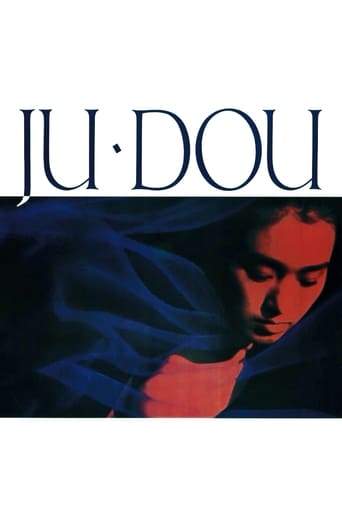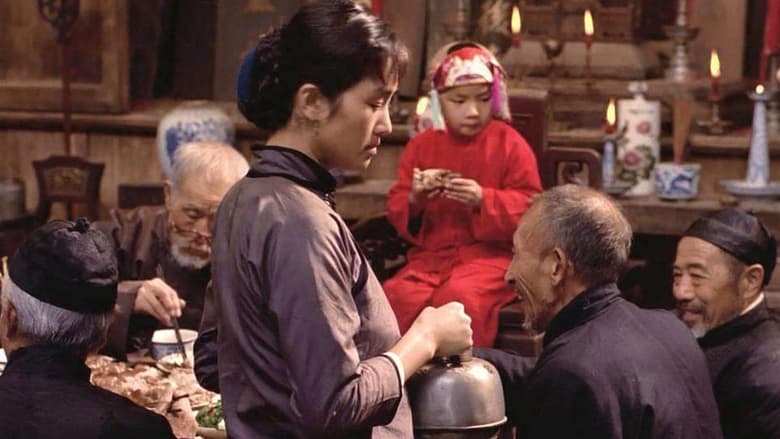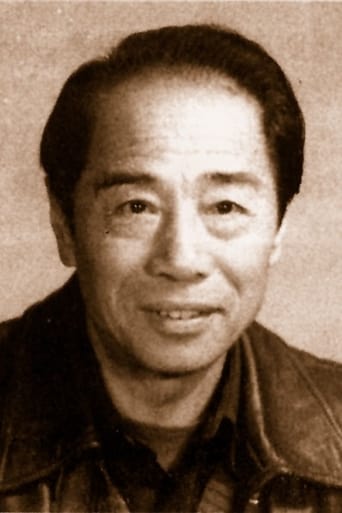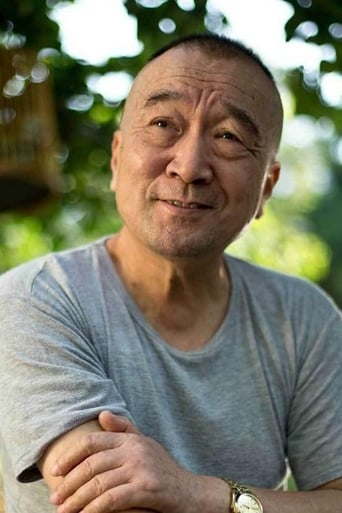Ju Dou (1990)
A woman married to the brutal and infertile owner of a dye mill in rural China conceives a boy with her husband's nephew but is forced to raise her son as her husband's heir without revealing his parentage in this circular tragedy. Filmed in glowing technicolour, this tale of romantic and familial love in the face of unbreakable tradition is more universal than its setting.
Watch Trailer
Cast
Similar titles




Reviews
Thanks for the memories!
It's funny, it's tense, it features two great performances from two actors and the director expertly creates a web of odd tension where you actually don't know what is happening for the majority of the run time.
The thing I enjoyed most about the film is the fact that it doesn't shy away from being a super-sized-cliche;
Through painfully honest and emotional moments, the movie becomes irresistibly relatable
JU DOU is another early effort for Chinese director Zhang Yimou, and one that has much in common with his debut feature RED SORGHUM. Once again Gong Li stars, here playing an unhappily married woman whose mill owner husband abuses her horribly. She ends up having a kid with her husband's nephew, something that seals her fate. As with pretty much all of Yimou's work, this is beautifully shot throughout with some nicely artistic compositions, while the acting is understated and the plot elements subdued; Yimou goes for the naturalistic approach throughout. I found it slow-paced and lacking in engaging characters, only picking up for the effectively tragic climax.
This is a very brief review of "Red Sorghum" (1987), "Ju Dou" (1990), "Raise the Red Lantern" (1991), "The Story of Qiu Ju" (1992) and "To Live" (1994), five films by Zhang Yimou. Each film stars actress Gong Li, each works as a companion-piece to the other, and each deals almost exclusively with the oppression of women within early 20th century China.Zhang's debut, "Red Sorghum" stars Gong Li as Young Nine, a peasant who is sold to a wealthy leper. Things only get worse for Nine, who must fend off a series of rapists, mean men and the Japanese Army itself, all the while running a successful winery. Throughout the film, Zhang uses boxes, deep reds and tight squares to amplify Nine's sexist surroundings. Indeed, the film opens with Nine literally forced into a box, a social reality which she spends the film attempting to break free of or even transform. For Zhang, China wasn't "disrupted" by the Japanese invasion, it was hell long before. Like most of Zhang's films during this period, "Sorghum" sketches the cultural and socioeconomic conditions which spurred China, with hopeful arms, toward Maoism.Zhang's next film, "Ju Dou", covers similar material. Here Gong Li plays Ju Dou, a woman sold to a violent oaf ("When I buy an animal I treat it as I wish!") who owns a fabric dying establishment. After her husband is crippled, Ju Dou forges a relationship with Yang Jinshan, a relative. When Ju Dou and Jinshan have a child together, the kid grows up into a mean brute. Like "Sorghum", "Ju Duo" is a tragedy obsessed with rich reds, boxes and patriarchal violence. Whilst its plot superficially echoes Zhang's own adulterous, then-scandalous affair with Gong Li, Zhang seems more interested in the way Ju Dou and Jinshan hide their illicit affair from other villagers. For Zhang, the duo's tacit submission to social mores merely validates the notion that their love is scandalous and so merely validates the symbolic power of the crippled patriarch, a power which Ju Dou's son must – as per his mother's very own actions – thereby respect and avenge.The arbitrary nature of power, and how this power is always "symbolic" and always unconsciously maintained (via ritual, personal belief and shared delusions), is itself the obsession of Zhang's "Raise the Red Lantern". Here Gong Li again plays a woman sold to a wealthy man. This man has several other wives, all of whom begin to violently fight one another in an attempt to win the patriarch's adoration. "Is it the fate of women to become concubines?" a character asks, pointing to the film's deft critique of feudal relations. Zhang's first masterpiece, "Lantern" is again obsessed with reds, boxes and sequestered women, though here Zhang replaces the voluptuous colours, camera work and widescreen Cinemascopes of his previous films with something more restrained. Because of this, Zhang's conveying of claustrophobia and oppression, of mind and spirit pushed to madness, feels all the more powerful.Next came Zhang's "The Story of Qiu Ju". A near masterpiece, it stars Gong Li as Qui Ju, a peasant farmer who embarks on a quest to avenge her husband, who's had his crotch kicked in by a village leader. More emasculated by this attack than her own husband, Qui Ju's quest takes her all across China, dealing with a Chinese bureaucracy which seems quite helpful, polite and even rational. And yet still this bureaucracy does not please Qiu Ju. It thinks in terms of commodities, monetary recompense and punishment, whilst Qiu Ju (like Zhang Yimou himself, whose previous films were banned, without explanation, by Chinese authorities) seems more interested in acquiring a "shuafa", a simple explanation and apology. By the film's end, both the "primitive justice" of rural China and the "civilized justice" of modern China are simultaneously mocked, praised and shown to be thoroughly incompatible. Zhang's first "neo-realist" film, "Qiu Ju" was shot with hidden cameras, amateur actors, and so is filled with subtle observations, cruel ironies and beautiful sketches of peasant life.One of Zhang's finest films, "To Live" followed. It stars Gong Li as Jiazhen, the wife of a wealthy man (Ge You) who is addicted to gambling. When this gambling results in the family losing its mansions, riches and status, Jiazhen and her husband are forced onto the streets. Ironically, this set-back saves the family; the Cultural Revolution arrives, and with China's shift to nascent communism, all wealthy land owners are demonised, attacked and killed.Unlike most films which tackle life under Mao's Great Leap Forward, "To Live" carefully juggles the good and bad of what was essentially a nation shirking off feudalism, monarchs, uniting and then trying, clumsily, to cook up some form of egalitarian society. This quest results in all manners of contradictions and socio-political paradoxes: community, solidarity and a simple life save our heroes, but their world is one of paranoia, danger, and in which everyone and everything is accused of being "reactionary". The film ends with Jiazhen's daughter dying, a death which is the result of both unchecked consumption (a doctor dies gobbling food) and communist "reorganisation" (all competent doctors have been killed/jailed for being counter-revolutionary). This jab at communism got the film banned in China (further highlighting the insecurity of the regime). Ironically, Maoism saw massive positive health care reformations, and saw an improvement in mortality rates which at times surpassed even then contemporary Britain and parts of America (life expectancy doubled from 32 years in the 1940s to 65 years in the 1970s). But such things don't concern Zhang. Spanning decades, "To Live" is mostly a broad account of life, love, loss and growth (the personal and political), all unfolding upon a canvas that is devastatingly cruel. Significantly, the film's title is both adjectival and a command; this is "what life is", but one must nevertheless "always push on". Gong Li and Ge You in particular are excellent.7.9/10 - See "Yellow Earth" (1984).
One of Zhang Yimou's early movies casts Gong Li as the abused wife of a wealthy silk dyer in 1920s China. She starts having an affair with her husband's nephew...but complications arise.The visuals play a major role in "Ju Dou". Obviously, there are the silk sheets hung to dry. But also, there are some shots of the Chinese countryside. It seems to represent the idealistic aims of the wife and nephew. The funeral procession was a really impressive scene.Zhang Yimou is now known for movies like "Hero", "House of Flying Daggers" and "Curse of the Golden Flower" (he seems to have leaned more towards Hollywood with each successive movie). I always like seeing the early work, just to see how a person started. This is a good one.
This work by Zhang Yimou (for those of you who don't know, Chinese surnames are written and spoken before first names) is an excellent step towards the masterpiece that came next in his line of films. He begins to further establish his signature as a director through heavy use of symbolic color and specific camera techniques that convey meaning beautifully. Please see this film if you get a chance--it's well worth it, especially if you like Zhang and/or Chinese cinema in particular.











